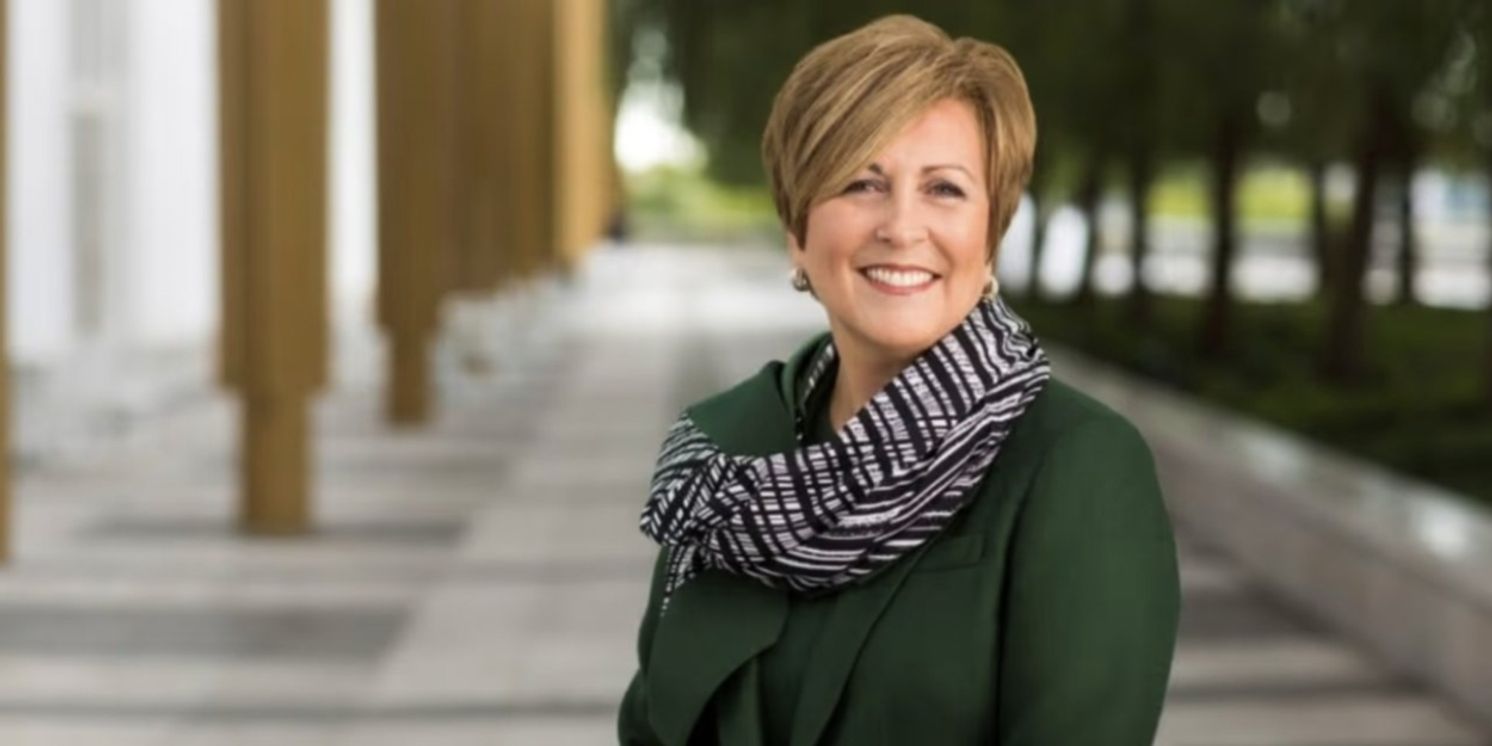Deborah Rutter Releases Statement in Response to Trump Kennedy Center Allegations
Rutter served as the first woman president of the Kennedy Center from 2014 to 2025. She left the position after President Donald Trump appointed new board members.

Ousted Kennedy Center President Deborah Rutter has released statement in response to allegations by members of the Trump administration regarding the financial health and past stewardship of The John F. Kennedy Center for the Performing Arts.
Rutter served as the first woman president of the Kennedy Center from 2014 to 2025. She left the position after President Donald Trump appointed new board members.
The Kennedy Center for the Performing Arts has become a flashpoint in the national arts conversation following a series of dramatic changes under the leadership of President Donald Trump. Earlier this year, Trump assumed the role of chairman of the Kennedy Center’s board, following a full leadership overhaul that included the removal of nearly 40 staff members and the dismissal of the institution’s longstanding president, Deborah Rutter.
Trump has since proposed a record-setting $257 million in federal funding for the Kennedy Center, vastly exceeding previous annual allocations. The proposed budget includes $242 million for capital repairs and renovations, along with additional funds for maintenance and administrative costs. Trump has cited the building’s “tremendous disrepair” as a justification, describing plans to reface the I-beams of the Center with marble. Critics, including Rep. Chellie Pingree, have questioned the motivations and called for transparency, particularly as the funding arrives amid proposed cuts to the National Endowment for the Arts.
Significant changes in programming are also underway. The Kennedy Center will present non-Equity national tours for the first time, beginning with upcoming engagements of Mrs. Doubtfire and Chicago. Trump has repeatedly questioned the use of union labor, both for performers and stagehands, citing cost-saving measures. The move has sparked pushback within the arts community and led to a cancelled engagement of Hamilton, while some cast members of Les Misérables have pledged to boycott a Trump-attended gala event scheduled for June.
Amid the upheaval, Kennedy Center workers have launched a unionization drive, forming the Kennedy Center United Arts Workers in response to staffing cuts and perceived political interference. Backed by the United Automobile Workers, the group has petitioned the National Labor Relations Board for a union election, demanding consistent employment practices and artistic independence.
In her first public comments since her ousting, Deborah Rutter issued a detailed statement, rejecting Trump administration claims of financial mismanagement. Rutter defended her record, citing board-approved budgets, transparent audits, and the establishment of a $10 million Sustainability Fund. She described the current accusations as “a malicious attempt to distort the facts” and reaffirmed that the Kennedy Center was “fiscally sound” at the time of her departure.
The statement reads:
I am deeply troubled by the false allegations regarding the management of the Kennedy Center being made by people without the context or expertise to understand the complexities involved in nonprofit and arts management, which has been my professional experience for 47 years. Assembling and executing a successful performing arts season that delivers approximately 2,000 performances year after year as the nation's premier cultural center was my honor for the last ten of those 47 years, and I am proud of what we accomplished during my time.
Each year during my tenure as president, the Kennedy Center adopted an operating budget for the upcoming fiscal year, which was approved by the Board. That budget served as a blueprint for our operations and programming—standard and responsible practice in arts management. In addition, in line with established management best practices, the Finance, Audit, and Executive Committees of the Board—composed of appointees from President Trump’s first term—had full transparency into all financial transactions and decisions. Financial statements, as well as audit reports, were presented at every Board meeting, in fulfillment of the Board's fiduciary responsibilities.
To ensure long-term sustainability from season to season, under my leadership we also established and maintained a reserve fund—the Sustainability Fund—which was designed to cover potential shortfalls in operating revenue that could result from any number of economic circumstances, including sustaining us through the protracted global pandemic. At the time of my departure last February, that fund held approximately $10 million, available to support the current as well as future season’s revenue fluctuations.
Following my departure from the Kennedy Center three and a half months ago, I have had no access to, nor knowledge of, its current financial situation—nor as to how changes in management as well as donor and patron behavior is impacting this year’s operating budget. Perhaps those now in charge are facing significant financial gaps and are seeking to attribute them to past management, which would include the Board of Trustees, some of whom were appointed by President Trump, in his previous term. This malicious attempt to distort the facts, which were consistently, transparently, and readily available in professionally audited financial reports, recklessly disregards the truth.
I stand by my assertion that at the time of my departure, the Kennedy Center was fiscally sound, on track to balance its budget for the year, and positioned to grow its endowment significantly while serving as a beacon for free artistic expression and a place where everyone could belong.
Deborah F. Rutter is an internationally respected arts executive with over four decades of leadership at premier cultural institutions. Throughout her career, she has been an ardent fan of opera, having forged collaborative relationships with LA Opera and Seattle Opera and championed the work of Washington National Opera. From 2014 to 2025, she served as the first female president of The John F. Kennedy Center for the Performing Arts, where she led a period of transformative growth while centering artists in all aspects of the institution’s work.

Videos

